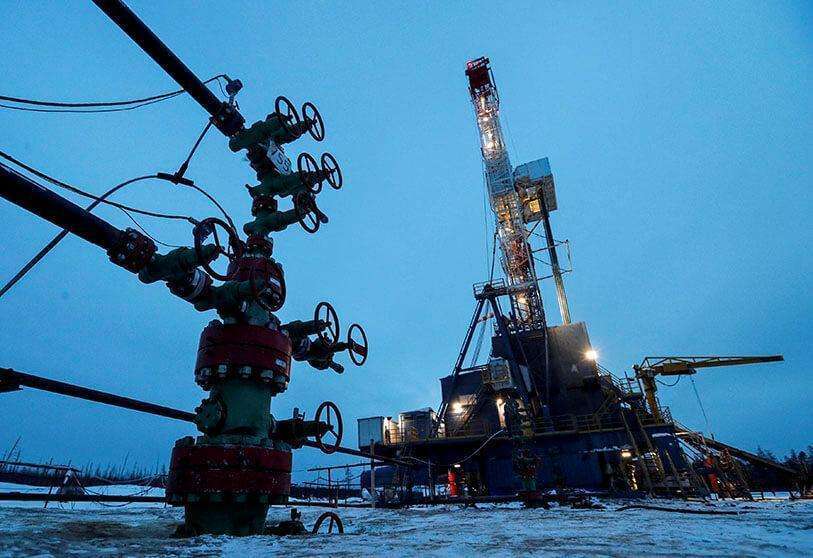Russia overcomes Western sanctions and finds new oil export customers in Asia

In early March, after Moscow launched its invasion of Ukraine, Russia became the most sanctioned country in the world, overtaking the Islamic Republic of Iran. Western sanctions targeting the Russian regime have focused on Russian banks, media outlets, politicians, military officers, journalists, oligarchs and other figures close to the Kremlin.
Following the sanctions, Western countries began to focus on imports of Russian raw materials, especially energy supplies such as oil and gas, considered to be President Vladimir Putin's 'war machine'. In order to curb this 'machinery', the United States banned imports of these two goods.

To the same end, the European Union has just agreed to a partial embargo on Russian crude oil, although certain countries - Hungary, the Czech Republic and Slovakia - have been exempted from this measure and will continue to receive Russian oil through the Soviet-era Druzhba pipeline.
As European leaders pointed out, the embargo aims to exert maximum pressure on Russia to end the war against Ukraine. Until now, Europe was Russia's main energy customer. Russian crude accounted for 27% of the EU bloc's imports in 2021, according to Eurostat data. For this reason, the embargo agreed by the EU could deal a heavy blow to Russia's national economy. However, Russia has for years been redirecting its trade ties towards Asia, where it hopes to find new customers to export its energy supplies.

For the moment, China and India are emerging as the main importers of Russian black gold, replacing European countries. In fact, last April, for the first time, Asia overtook the Old Continent as the largest customer of Russian oil, according to Kpler data collected by Bloomberg. New Delhi, in particular, is the main destination for this supply. According to Kpler, imports have soared to 800,000 barrels per day since the war began, up from 30,000 barrels per day previously.
Both Beijing and New Delhi have maintained a neutral stance on the war in Ukraine since it began on 24 February in order to maintain trade relations with Moscow. "Some of the buyers interested in Asia are more motivated by economics than taking a political stance," Jane Xie, an analyst at Kpler, told Bloomberg.

Russia continues to export its raw materials, dodging Western sanctions and embargoes. Russian exports recovered to pre-invasion levels in April, according to data from the International Energy Agency (IEA) reported by El Economista. "Unless the West exerts diplomatic pressure on Asian buyers, we don't see the supply gap widening," Norbert Rücker of Julius Baer, a Swiss banking institution, told the business daily.
The head of European diplomacy, Josep Borrell, has also spoken on this issue, admitting that Europe cannot prevent Russia from selling oil to non-European countries. "We are not so powerful, but we are Russia's most important customer," Borrell said.

Moscow is not the only one to benefit. China and India have also benefited from the situation, as millions of barrels of crude have been purchased at a lower price by taking advantage of heavily discounted flows. As The Wall Street Journal points out, Russian oil from the Urals is worth 35 dollars less than Brent, the benchmark crude in the European market from the North Sea.
The US newspaper also claims that since the war began and sanctions were imposed, efforts are being made to hide the origins of Russian oil to keep it flowing. "The oil is hidden in mixed refined products such as gasoline, diesel and chemicals," explain Anna Hirtenstein and Benoit Faucon. However, this has already been done in the past to sell Iranian and Venezuelan oil and circumvent sanctions against Tehran and Caracas.

Indeed, as Lauri Myllyvirta, an analyst at the Center for Research on Clean Air and Energy (CREA), told the WSJ, "there seems to be a trade where Russian crude is refined in India and then some of it is sold to the United States". Myllyvirta refers in particular to a refinery owned by the Mumbai-based conglomerate Reliance Industries Limited. This refinery, which bought seven times more Russian oil in May compared to previous months, reportedly purchased a discounted cargo which it refined and subsequently sold.
Western sanctions as well as embargoes on Russian energy have not served to paralyse the Russian war machine. Even with these shackles imposed on the Russian economy, oil and gas revenues will earn Moscow around $285 billion this year, according to Bloomberg estimates based on Ministry of Economy figures. By way of comparison, it is interesting to note that Russian funds frozen abroad amount to $300 billion. So, as the financial media highlights, adding other commodities would more than compensate for these frozen reserves.

Such commodities could include grains. Certain countries, especially nations in North Africa and the Middle East, are already feeling the shortages and rising prices of wheat or maize. These two elements set the stage for social protests in a region that a decade ago was shaken by a series of mass demonstrations that in some cases ended with the overthrow of national governments. The Arab Spring is once again very much in the spotlight today due to rising food prices and social unrest, one of the causes that led to the outbreak of protests in 2011.

"It can be said that the first and foremost reason for unrest in the Arab world is always the lack of economic mobility," Kamal Alam, a member of the Atlantic Council, told CNBC. For this reason, the purchase of grain will become one of the priorities of the leaders of these countries, nations that have not joined the sanctions against Russia.
In this sense, as Wouter Jacobs, a researcher at the Erasmus University of Rotterdam, reminds Bloomberg, "the vast majority of the world is not involved in the imposition of sanctions". For this reason, and given the looming food crisis, trade with Russia will continue, while ties with Asia and the Middle East will increase.










